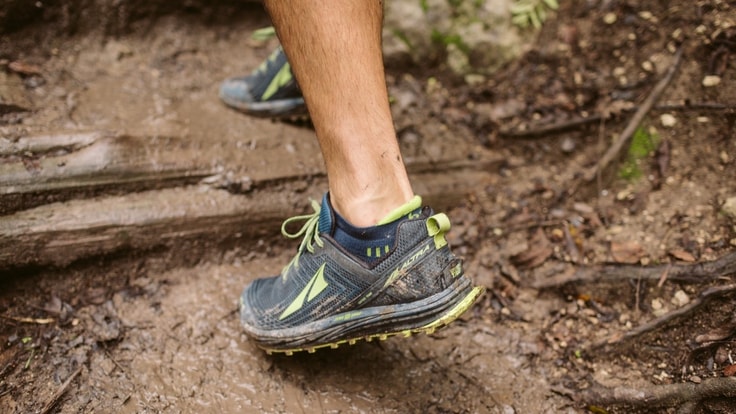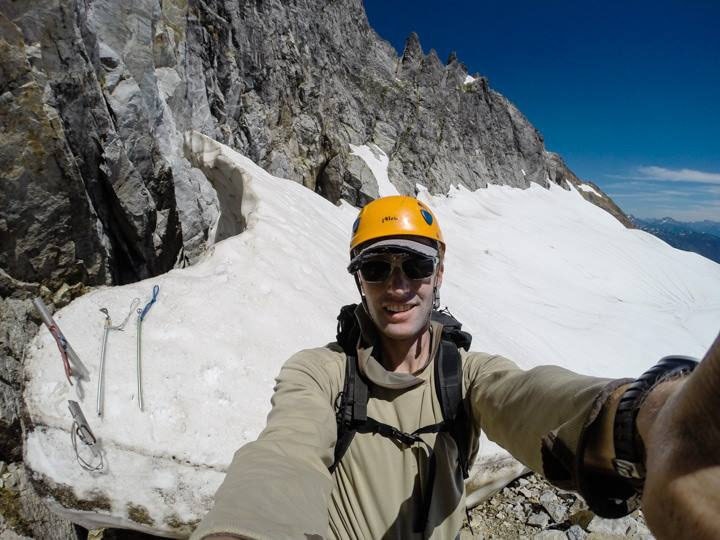In most cases, you don't need waterproof trail-running shoes, even if you're running on wet and muddy trails. Waterproof trail-running shoes can trap water inside and cause your feet to overheat and sweat, which is why many trail runners choose very breathable, non-waterproof shoes instead. To help you understand what's right for you, let's look at a couple of key traits of waterproof trail-running shoes: waterproofness and warmth.
Waterproofness
Waterproof trail-running shoes are, of course, intended to keep water out. They do this by means of a coating or built-in liner that creates a waterproof barrier in the fabric uppers of the shoes. This can be a great feature, but it's important to understand that the waterproof barrier is just as good at keeping water in the shoes as it is out. So, imagine you're cruising down a trail when you step in a deep puddle and water pours in via the tops of the shoes. You can mitigate this a bit by wearing trail-running gaiters, but you'll likely still be left sloshing your way to the finish line in heavy, wet shoes. For this reason, many trail runners embrace the fact that their feet will get wet and choose non-waterproof shoes that drain better and allow more drying airflow.
Warmth
Waterproof trail-running shoes are warmer than non-waterproof shoes. This is the result of waterproof coatings or liners inhibiting airflow through the fabric of the shoes. This can be a great thing if you're running in freezing or near-freezing temperatures or know your feet get cold out there. But, in more mild conditions, many runners find that waterproof shoes cause their feet to overheat and work up a sweat, which can potentially bring on blisters.
When and When Not to Choose Waterproof Trail-Running Shoes
With the basics of waterproofness and warmth in mind, let's look at when waterproof trail-running shoes are the right choice and when they aren't. And know that your personal preference can always overrule our suggestions.
When to Wear Waterproof Trail-Running Shoes
- You're running in snow: Waterproof shoes will keep moisture from snow from passing through the fabric uppers, and when combined with gaiters, the snow is unlikely to come in through the top. They will also keep your feet warmer than non-waterproof shoes.
- You're running in cold and damp (not really wet) conditions: Waterproof trail runners will shield your feet from moisture when your shoes touch wet brush and grass. They will also keep your feet warmer in cold weather.
When NOT to Wear Waterproof Trail-Running Shoes
- You're running in warm weather: Even if the trail is sopping wet, a waterproof barrier is likely to cause your feet to overheat in anything but cold weather.
- You're running in really wet conditions: Experienced trail runners recommend coming to terms with the idea that your feet will get wet and suggest choosing non-waterproof shoes that will drain water better and dry more quickly than waterproof shoes. This will help limit the amount of water that gets trapped inside your shoes.
To learn more about when waterproof trail-running shoes are the right choice, check out our video:




